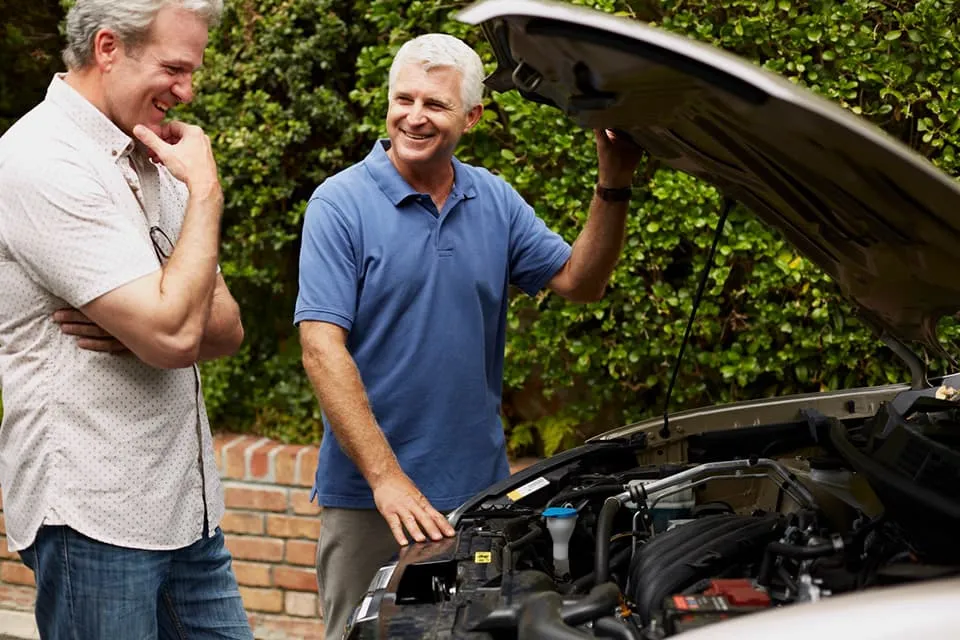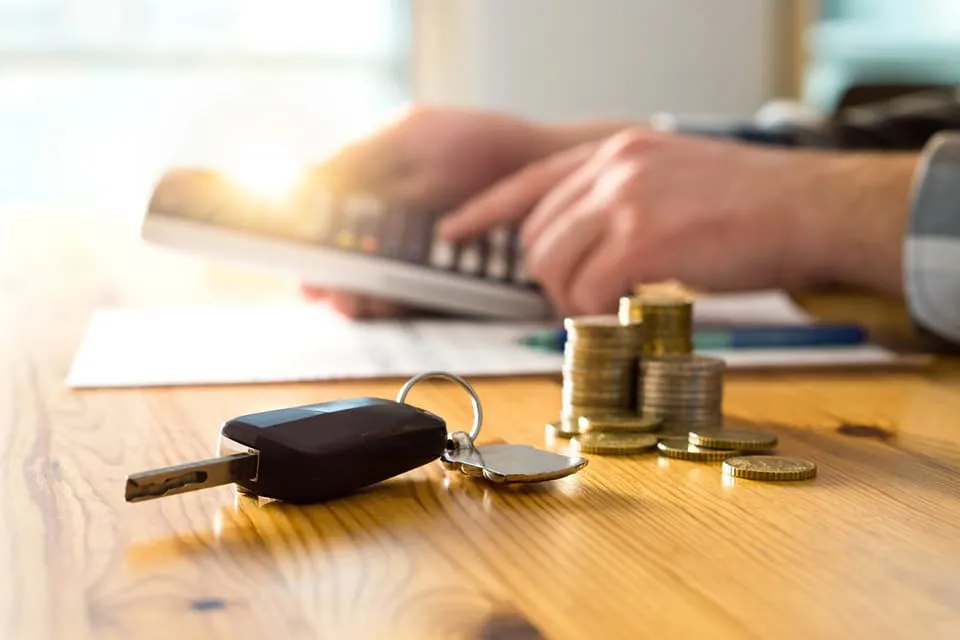How to Buy a Car From a Private Seller

Buying a used car from a private seller can be a great way to save money while still finding a vehicle that meets your specific needs. A private seller can reduce the financial stress usually associated with such a major purchase; the absolute best deals on cars can be found when going through an individual rather than a dealership. Let's look at a couple of steps you can follow to complete your purchase safely and without stress.
6 Steps To Buying a Car From a Private Seller
Buying a car from a private seller can save you thousands, but only if you do it correctly. Let's look at the 6 simple steps you can follow to stay safe and get the best deal possible.

Determine What Type of Car You Want
The first step to buying a used car from a private seller is to make a list of your desires and restrictions. The make, model, and year you decide to purchase depends on:
- The intended use of the vehicle: What vehicle you select should be decided by what purpose you will use the vehicle for. Are you going to drive the vehicle frequently for either a commute or ride-share service? Will you only be traveling short distances? Do you need lots of storage space? The answers to these questions will decide the size and condition of the car you'll require and help narrow down your search.
- Your budget: The biggest factor limiting what vehicles you can choose from is your budget; having a big budget is obviously advantageous, but buying a vehicle from a private seller can often raise the quality of the car you'll get for a lower price. If you plan to get a lease or loan, you can use a loan calculator like the one offered by GoodCar to see what your budgetary constraints will be.
- What type of climate you live in: When buying a car from a private seller, the type of weather you'll be driving in can help inform your decision as well; your specific climate can determine whether you need something with all-wheel drive, a car with solid air-conditioning, or a vehicle with a convertible top.
- What features you want the car to have: Before you begin your search it's always best to assemble a list of "wants" and "needs" for your prospective vehicle. This includes essential elements like safety features, passenger space, and fuel economy, but you should also take into account what sort of add-ons you'd like to have. These can be components like an upgraded sound system, heated seats, interactive touch screen, or any other device that can improve your driving experience.
- How far you are willing to travel for the sale: While there may be several dealerships within a couple miles of your home, private sellers can often be many miles away. If you find a vehicle that fits all of your requirements, make sure to check how far the seller is before you agree to a meet-up; with high gas prices, driving several hundred miles may not be a financially wise decision to make.
Search for a Private Seller

Once you've picked out a couple of cars you would be interested in, it's time to search for prospective private car sellers in your area. There are a number of ways to find a private seller, including:
- Online Marketplaces
- Classified Ads
- Through Your Local Community
It's best to use a combination of all available options to try to track down the vehicle you're looking for. If possible, finding multiple used vehicles that suit your needs is best; that way you can compare cars and try to get the best price possible. Once you've selected a couple of cars, you'll want to research their vehicle history.
Get a Vehicle History Report
If you can get the VIN number of the car or other identification information, it's always best to get a vehicle history report and run a VIN lookup. These can show you a wide range of details about a car you are interested in including:
Title Records
Junk/Salvage Records
Insurer "Total Loss" Records
Pricing
Sales History
Problem Checks
Auto Specs
Location History
NHTSA Crash Test Ratings
NHTSA Recalls
Awards and Accolades
Manufacturer Information
This information can help you determine whether a car is actually a good deal or the seller is simply omitting information about the vehicle's past. You can also use your report to negotiate a better price, or see if the car will need repairs in the near future.
Set a Meetup Time
If it seems like the car is a good match and the vehicle history report is clean when buying it from a private seller, you'll want to set up a meetup time. It's always important when dealing with an unknown private seller to prioritize safety; try not to meet the person at night, and if possible set up the meeting for a public area. Meeting the person in a place other than their house is not only safer, but can help prove the vehicle is operational. While a lemon car may function just long enough for you to get home, a scammer is unlikely to risk a breakdown to meet you somewhere a modest distance away.
Negotiate for a Good Deal

If the person agrees to a meetup, make sure to negotiate for the best possible deal. Unlike a dealership where there is less wiggle room, a private seller will usually be open to haggling over price. This is where your research can come in handy; by comparing the prices of similar cars in the area and combining that with your vehicle history report, you can create a better bargaining position for your negotiations. Make sure to test drive the vehicle as well and ask any questions you have before agreeing on a final price.
Make Sure All Necessary Documentation is Present
Depending on the state you plan to register your vehicle within, there are two primary documents you'll need to receive when buying a used car from a private seller to ensure the sale is legally binding:
Bill of Sale
A bill of sale is a document that serves as an official record of the vehicle transaction. A private seller who doesn't intend to scam you will provide this document quickly, mostly due to the fact that it releases them from liability in the case of an accident. Bills of sale are required in 16 states including:
- Alabama
- Arkansas
- Colorado
- Connecticut
- Hawaii
- Idaho
- Maine
- Nebraska
- New York
- Ohio
- Rhode Island
- South Dakota
- Vermont
- Washington
- West Virginia
- Wyoming
The document itself includes a number of details related to both the vehicle and all involved parties, including:
- Purchase Date
- Purchase Price
- Buyer's Signature
- Seller's Signature
- Vehicle Details
- Odometer Reading
Car Title
For you to take legal ownership of the used vehicle when buying it from a private party, the seller will need to sign over the car's title. A car title can be a very informative document; each type of car title comes with its own set of criteria and associated issues. There are many different types of car titles, with the 10 most common being:
- Clean
- Junk
- Salvage
- Reconstructed
- Bonded
- Rebuilt
- Affidavit
- Odometer Rollback
- Water Damage
- Dismantled
If possible, you want to purchase a vehicle with a clean title. Every other title indicates previous damage or current subpar operation; if you do purchase a car without a clean title, make sure you are paying the appropriate price. If the car has no title, do not purchase it. This means that you won't be the legal owner and the private seller likely isn't either.
Buying a Car From a Private Seller Frequently Asked Questions
How to Buy a Car from a Private Seller with Cash?
As long as you get a bill of sale and the seller is okay with accepting cash, you can purchase a vehicle in much the same way as you would with any other form of payment. Make sure the amount of cash you pay is present on the bill of sale and that the document is signed by all involved parties.
What To Ask When Buying a Used Car?
There are a number of questions you should ask before buying a car from a private seller:
- Has this car ever been in a collision or accident?
- Are you willing to negotiate the price?
- Has this car recently undergone repairs?
- Are you the original owner of this vehicle?
- Are there any current or past recalls on this car?
- How old is the vehicle?
- What is the car's mileage?
- Why did you decide to sell the car?
Which is a Drawback To Purchasing a Vehicle From a Private Seller?
One major drawback to purchasing a used vehicle from a private seller is the lack of warranties or financing. You won't get the same coverage you could get from a dealer warranty, and you can't finance the vehicle through a loan or lease. For the most part, you need the payment for the car in full before a private sale can be finalized.
What are the Advantages Of Buying a Car From a Private Seller?
The biggest advantage of buying a car from a private seller is the price. You can usually get a much better price for a good quality vehicle by going through a private seller as opposed to a dealership. Car salesmen usually work on commission and aren't looking to give out deals, while private sellers are likely willing to negotiate to get the car off of their hands.
How Do I Get a Temporary License Plate When Buying From a Private Seller?
It's usually not possible to get temporary plates after buying a car from a private seller. Once you receive your bill of sale and the title is transferred, you'll need to go to the DMV to pay title, registration, and sales fees. Then you'll get an official license plate for your vehicle.
FREE Vehicle Search
- Accidents
- Problem Checks
- Title Records
- Recalls
- Values
- Specs
-
InfoPay, Inc. (dba GoodCar) is an Approved NMVTIS Data Provider
-
-


























